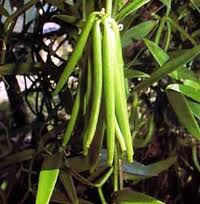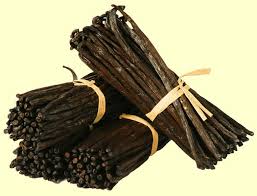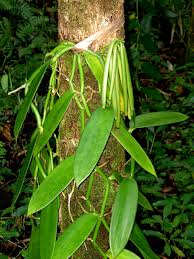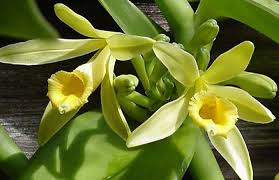

Vanilla
Description
Vanilla
which is a member of the orchid family is a monocot climber having
a stout, succulent stem, short petioled with oblong leaves of about
20 cm long. The inflorescence is a raceme with 20 or more flowers.
Flowers are either yellowish green or white, about 6 cm long and
2.5 cm wide. The fruit is cylindrical and is about 20 cm long. It
is commonly known as ‘beans’ or ‘pod’ is a capsule.
Origin
and Distribution
Vanilla
is a native of the Atlantic Coast and can be found from Mexico to
Brazil. The important vanilla producing countries including India
are Madagascar, Mexico, Malagasy Republic, Comoro, Reunion,
Indonesia and Seychelles.
Vanilla
grows well at an altitude of 1000 meter above the sea level, under
hot and moist conditions. An optimum temperature ranging from 21-32
degree C and rainfall 2000-2500 mm annually. A tropical climate
with adequately well-distributed rainfall is best suited. A dry
period of about 2 months is required for flowering and restricting
vegetative growth. Ideally, a light, porous and friable soils with
pH. 6-7 with partial shade is essential for its successful
cultivation.
Uses
Vanilla
is used primarily as a flavouring ingredient. Being a critical
intermediary, it is used in numerous pharmaceutical products and
also as a subtle component in perfumes. It is used as a flavouring
agent in the preparation of ice creams, milk, beverages, candies,
confectionaries and bakery products.

